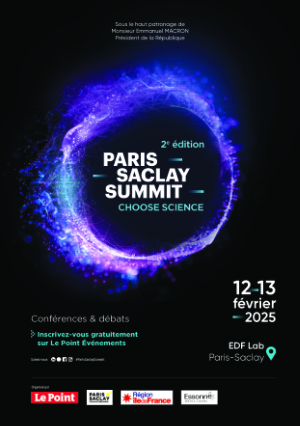Machine learning-based risk stratification of cardiovascular patients using continuous ECG monitoring
| ABG-127661 | Master internship | 6 months | > 600 € |
| 2024-12-19 |

- Computer science
- Health, human and veterinary medicine
- Engineering sciences
Employer organisation
Website :
Founded in Nancy in 1999, Banook is a cardiac safety central provider specialized in the centralization of cardiac data derived from electrocardiograms (ECG) and central imaging within clinical trials. Banook relies on a network of renowned Key Opinion Leaders and a CTMS (Atrium) that ensures secured and automated data centralization. Banook serves as a key partner for pharmaceutical laboratories, biotechnology companies and generalist Contract Research Organizations (CROs) in conducting their clinical trials. While historically based in Nancy, Banook has gradually expanded internationally, with a presence in Canada and Germany following the acquisition of the Munich-based company Nabios Gmbh in 2021 and the opening of an office in Boston in 2022. The team of approximately 70 professionals is led by Alexandre Durand-Salmon
Description
Project overview
Wearable devices with electrocardiogram (ECG) sensors are increasingly being used for continuous cardiovascular monitoring. However, translating the vast amount of data collected into actionable insights remains a challenge. Furthermore, the quality of ECG signals captured by wearable devices can be influenced by several factors like motion artifacts or poor sensor placement. This research project aims to tackle these challenges in the context of patient risk stratification as the early identification of individuals at higher risk of developing cardiovascular events (e.g., stroke, syncope, sudden cardiac death) is essential in disease management.
Internship objectives
- Using real-world continuous ECG recordings [1-3], develop an automated ECG quality assessment system [4] to identify high-quality ECG leads and segments.
- Leverage relevant ECG features (e.g., heart rate variability metrics) to develop interpretable machine learning models for assessing the risk of cardiovascular events in asymptomatic hypertensive patients [5] and patients with chronic heart failure [6].
- Evaluate the impact of including non-ECG clinical variables in model performance.
References
- Silva, I., et al. (2011). Improving the quality of ECGs collected using mobile phones: The Physionet/CinC Challenge 201 Computing in Cardiology (pp. 273-276).
- Nemcova, A., et al. (2020). Brno university of technology ECG quality database (BUT QDB). PhysioNet, 101, e215-e220.
- Tan, S., et al. (2019). Icentia11k: An unsupervised representation learning dataset for arrhythmia subtype discovery. arXiv:1910.09570.
- Satija, U., et al. (2018). A review of signal processing techniques for electrocardiogram signal quality assessment. IEEE reviews in biomedical engineering, 11, 36-52.
- Melillo, P., et al. (2015). Automatic prediction of cardiovascular and cerebrovascular events using heart rate variability analysis. PloS one, 10(3), e0118504.
- Martın-Yebra, A., et al (2024). The MUSIC Database: Sudden Cardiac Death in Heart Failure Patients.Computing in Cardiology.
Supervision environment
The 6-month internship is funded by Banook Group, a company specialized in drug safety clinical trials and headquartered in Nancy (France). During the internship, you will be supervised by researchers at Banook and the IADI laboratory (Inserm U1254, CHRU Nancy Brabois).
Profile
Signal processing, Machine learning, Programming with Python
Starting date
Vous avez déjà un compte ?
Nouvel utilisateur ?
Get ABG’s monthly newsletters including news, job offers, grants & fellowships and a selection of relevant events…
Discover our members
 Aérocentre, Pôle d'excellence régional
Aérocentre, Pôle d'excellence régional  Laboratoire National de Métrologie et d'Essais - LNE
Laboratoire National de Métrologie et d'Essais - LNE  Tecknowmetrix
Tecknowmetrix  TotalEnergies
TotalEnergies  Nokia Bell Labs France
Nokia Bell Labs France  Institut de Radioprotection et de Sureté Nucléaire - IRSN - Siège
Institut de Radioprotection et de Sureté Nucléaire - IRSN - Siège  MabDesign
MabDesign  MabDesign
MabDesign  CASDEN
CASDEN  ANRT
ANRT  Institut Sup'biotech de Paris
Institut Sup'biotech de Paris  Ifremer
Ifremer  ONERA - The French Aerospace Lab
ONERA - The French Aerospace Lab  SUEZ
SUEZ  ADEME
ADEME  PhDOOC
PhDOOC  Groupe AFNOR - Association française de normalisation
Groupe AFNOR - Association française de normalisation  CESI
CESI  Généthon
Généthon




